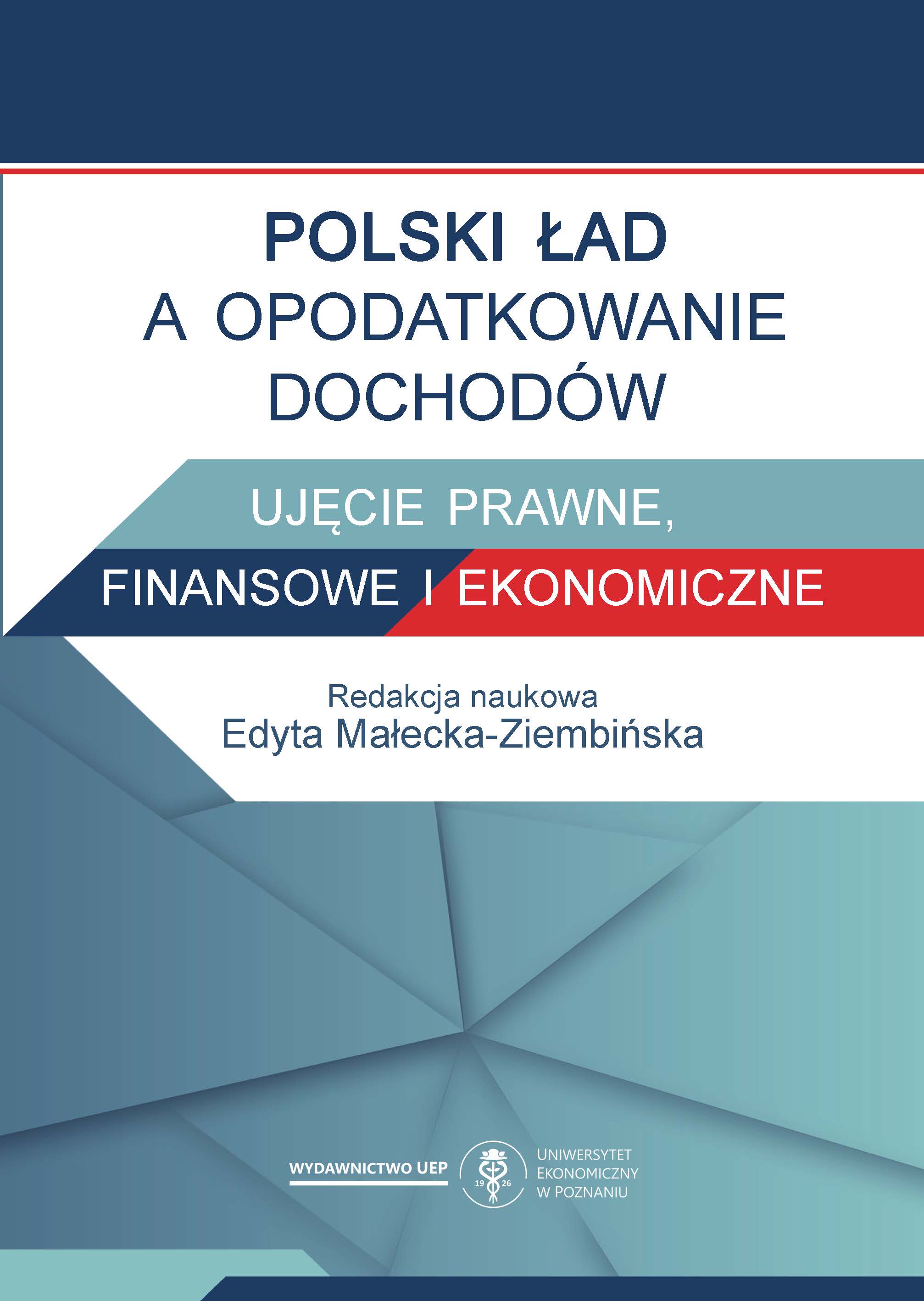Polski Ład z perspektywy progresji podatkowej i rozwiązań prorodzinnych
Polish Deal from the perspective of tax progression and pro-family solutions
Author(s): Edyta Małecka-Ziembińska
Subject(s): Economy, Business Economy / Management, Micro-Economics, Economic policy, Government/Political systems, Welfare systems, Family and social welfare, Public Finances, Fiscal Politics / Budgeting, Accounting - Business Administration, Socio-Economic Research
Published by: Wydawnictwo Uniwersytetu Ekonomicznego w Poznaniu
Keywords: Polski Ład;podatek dochodowy od osób fizycznych;progresja podatkowa;rozwiązania prorodzinne;
Summary/Abstract: Purpose: The aim of the research is to identify, structure and evaluate changes affecting the progressivity and family-friendly nature of personal income tax in Poland, introduced in 2022 as part of the Polish Deal socio-economic program. The analysis takes into account the legal status as of January 1, 2022 (Polish Deal) and changes introduced from July 1, 2022 or January 1, 2023 (Polish Deal 2.0). Design/methodology/approach: The chapter is dominated by a normative approach, but not limited to textual-dogmatic analyses. The aim was to identify the systemic significance of the introduced changes, and the creation of tax law was also analysed. The chapter consists of three points. In the first point, the most important changes to the Polish Deal and its adjustments under the Polish Deal 2.0, which affect the progression and family-oriented nature of personal incometax, were identified and grouped in the table. In the second point, both the nature and the method of implementation of changes in the progressivity of the tax under consideration were assessed. In turn, in the third point, an analogous assessment was made with regard to changes in the pro-family elements of this tax. Findings: The changes introduced to the personal income tax under the Polish Deal and the Polish Deal 2.0 lowered the burden of this tax not only for people with the lowest income, but also for those with medium and high income. These changes, however, have to be considered together with the burden resulting from the health insurance contribution, which until the end of 2021, in part of 7.75% of the contribution base, was tax deductible. As a result, only the lowest-earned taxpayers benefit from the combined changes, for some of them the reduction in income tax becomes neutral, and for high-earned taxpayers – it does not compensate for the additional burden of health insurance, thus exacerbating the tax and contribution progression. Inevitably, the reduction of personal income tax results in lower revenues to the state budget, and moreover, increases the pressure on its expenses in order to compensate local government units for the loss of income due to the percentage share in this tax. In the face of the chronic budget deficit, in the conditions of historically high public debt and rising costs of its servicing, and the accompanying rising inflation, a natural question arises as to how this loss of budget revenues will be compensated. Knowledge of the answer to this question will allow to estimate the full redistributive effect of changes in the socio-economic program of the Polish Deal.
Book: Polski Ład a opodatkowanie dochodów. Ujęcie prawne, finansowe i ekonomiczne
- Page Range: 117-136
- Page Count: 20
- Publication Year: 2023
- Language: Polish
- Content File-PDF

